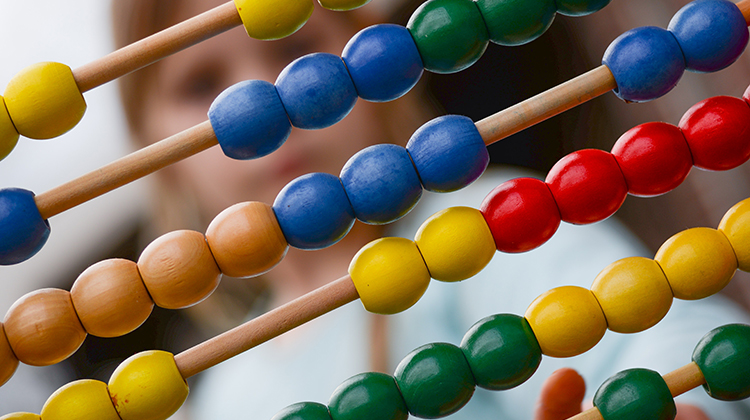Imagining a world of maths achievement

Mathematical Playworld takes its lead from Conceptual PlayWorld, a model of intentional teaching developed by Laureate Professor Marilyn Fleer of Monash University and begins with a selected story where children and adults build emotional connections with story characters before they collectively enter the playworld.
The model, developed by Dr Liang Li and Dr Leigh Disney of Monash University, was used in a recent study seeking to understand the most effective means of supporting young children’s maths learning in a play-based program.
This study – with a specific focus on the development of algebraic reasoning of creating repeating patterns in play – found that, ‘Young children’s problem-solving process became personally meaningful for them in the Mathematical Playworld activity setting.'
Mathematical Playworld engages the teacher as a co-player and co-creator in the collective ‘Playworld’ to motivate children to develop mathematical problem-solving skills. Research showed that children’s meaningful learning process can be improved by active engagement with teachers.
In an initial engagement between teachers and students for the study, teachers chose to begin with the storybook, Room on a Broom (Donaldson, 2003) because they observed the children were very interested in stories about witches.
The teachers believed the story context would motivate the children while also linking closely to mathematical concepts, such as, ‘How much room on the broom?’ The story evolved with the teachers and children both playing character roles and bringing the story to life. The teachers then dramatized an emotionally charged mathematical problem, i.e. ‘How many people can fit on the broom to go the witches’ party?’ and the children were fully engaged in the mathematical problem solving.
“Teachers play a pivotal role as active co-players and co-creators engaging in the sustained shared collective imaginary situation with the children,” Dr Li says.
“Early mathematics learning is a powerful predictor of children’s mathematics achievement in school and previous studies have shown that young children have significant capacities to learn and master mathematical concepts at a very early age.
“Past research indicates the importance of problem solving as a mathematical process yet there is little research on the ways young children engage and process this information. This particular study focuses on how young children process mathematics information through play-based problem solving in early childhood settings.”
Previous research shows imaginative play is the leading activity for pre-school aged children. The world of imagination and storytelling enables children to imitate the roles of adults and to explore cultural knowledge, such as mathematical concepts, and develop their conceptual thinking.
The study builds on previous research which showed, ‘Exploring patterns in the early years is seen as an important introduction to algebraic thinking as children begin to notice similarities and differences between and among patterns, create rules to describe relationships, and eventually represent those relationships using symbols.’
According to the researchers, ‘The improvement of children’s mathematical thinking is achieved by the appropriation of cultural tools in meaningful contexts. Learning is embedded using narrative frameworks to dramatize the maths problem and engage children in the problem-solving process.’
“It is important children have a sense of ownership in their learning,” Dr Disney says, “the teaching of mathematics needs to focus on the process of problem solving rather than drill and practice of mathematical skills at an early childhood level. It requires a frame where children are part of the learning process as active and engaged learners and where teachers can imbed teaching practices in play.”
The study by Li and Disney was conducted over a seven-month period and based on observations of children and teachers interacting with the program in an early childhood setting.
"One of the aims of the project was to explore how the Mathematical Playworld creates conditions that support children’s mathematical thinking and conceptual learning in play-based early childhood settings.
“The study contributes to understanding young children’s mathematical problem-solving processes in the collective imaginary situation by considering how learning processes become personally meaningful for children and by exploring teachers’ role in play for supporting children’s mathematisation."
The researchers say the teaching model, ‘Builds motivating conditions for young children to learn mathematical concepts in play and provides children with a solid foundation for entering the school environment.’
Li and Disney believe Mathematical Playworld has the potential to be a key learning tool for early childhood teachers within play-based settings. They plan to extend their current study to include more early childcare settings.
Li, L. & Disney, L. (2021). Young children's mathematical problem solving and thinking in a playworld. Mathematics Education Research Journal. https://rdcu.be/cl8eE